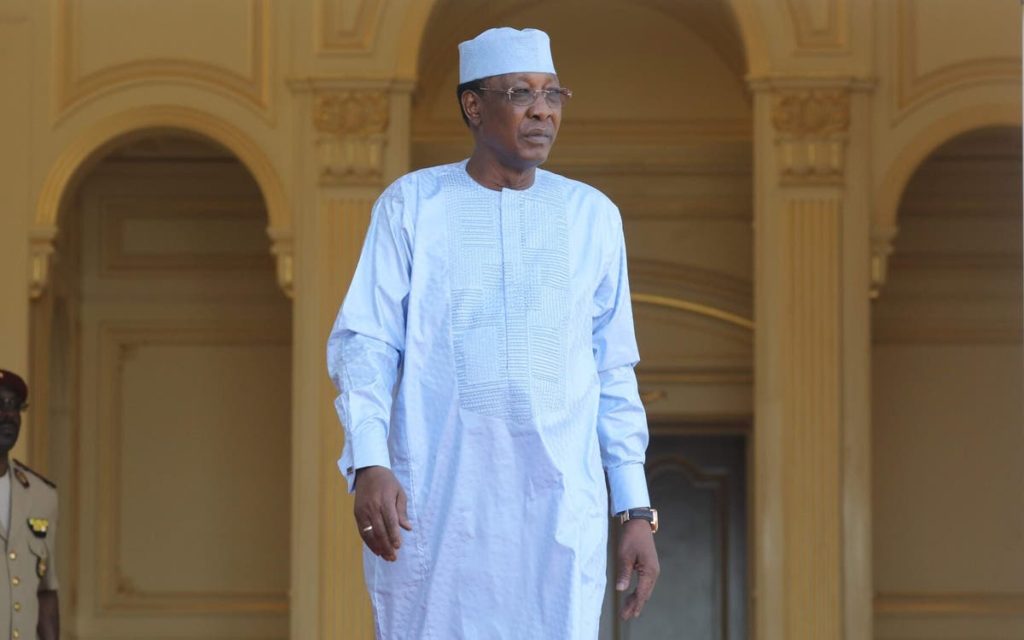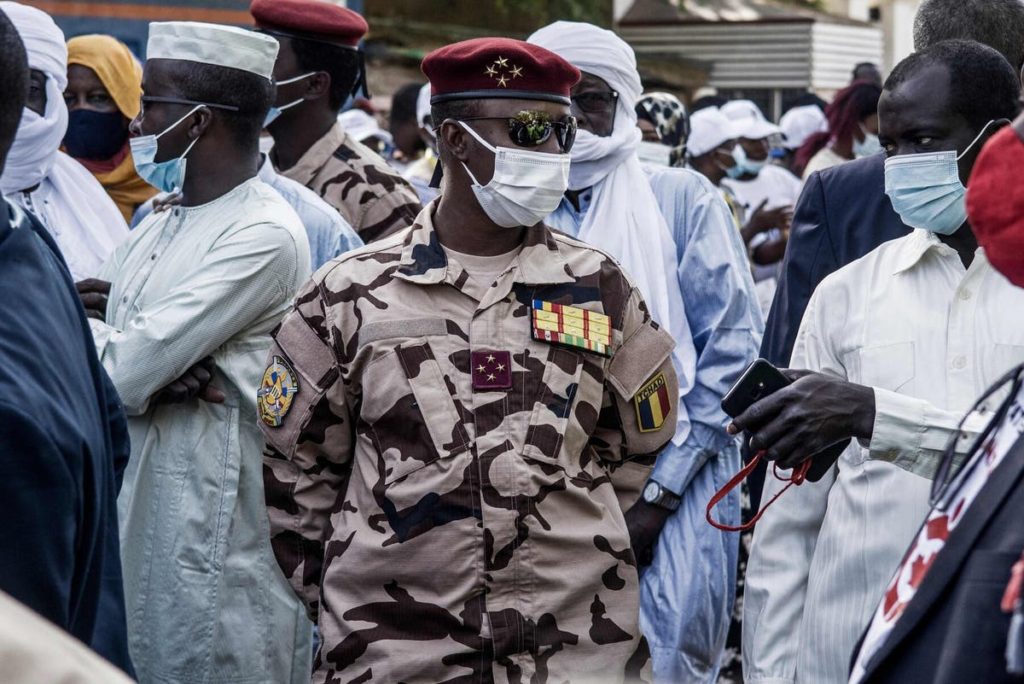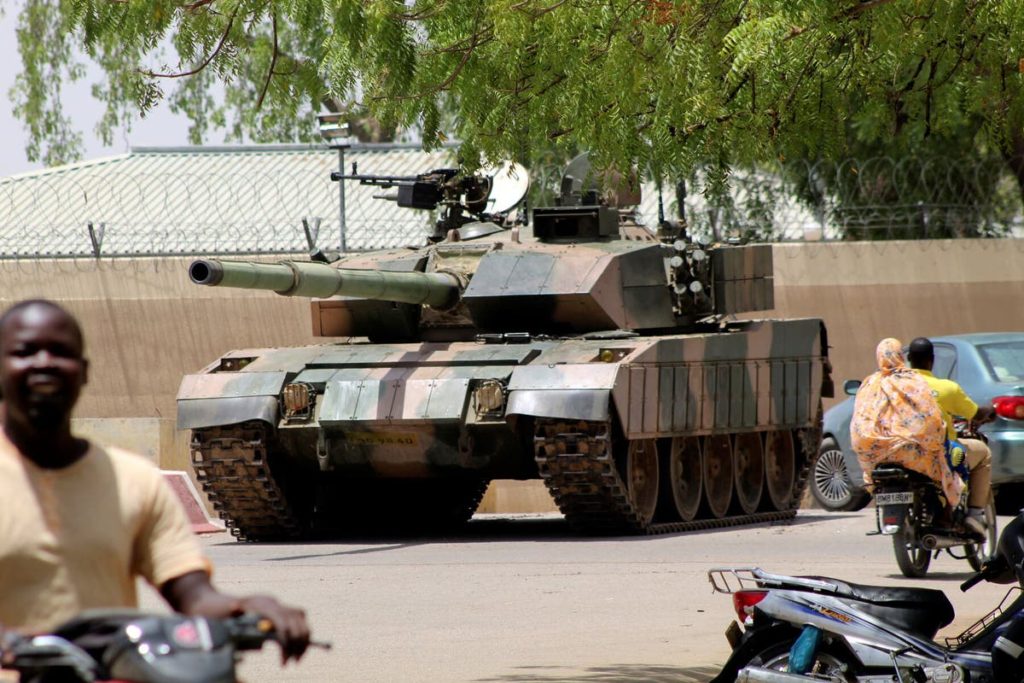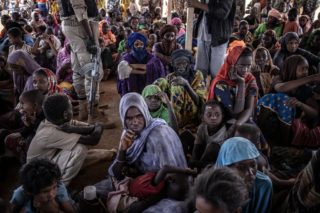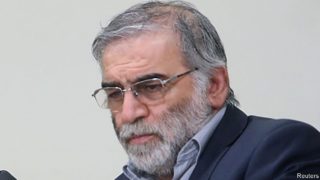NDJAMENA, Chad — Gunshots rang out in the capital of Chad Monday night into early Tuesday morning as supporters of the president, Idriss Déby, fired in the air celebrating the announcement that after three decades of iron-fisted rule, he had just won a sixth term.
Meanwhile, Mr. Déby was dying on a battlefield north of the capital, Ndjamena, of wounds sustained while fighting rebels trying to overthrow his government, his military generals said. His death was announced on Tuesday.
The death of Mr. Déby, who brooked no dissent and was feared by his own people, could spark a battle for succession and leave a gaping hole in a country heavily relied upon by the West in its wars against Islamist extremists in West and Central Africa.
Chad is a desert nation three times the size of California, surrounded on all sides by countries facing serious instability, like Libya, to the north, and Nigeria to the south. Its military forces have been key to both the war in the Sahel, a vast stretch of territory to the south of the Sahara, and the fight against Boko Haram and its splinter groups in the Lake Chad region.
For that reason, Mr. Déby enjoyed the support of France and the United States, despite the repression of his political opponents and many accusations of human rights violations.
News of the death of Mr. Déby, 68, was broadcast to the nation on state television by a group of military officers, who also announced that the president’s son would succeed him and head a transitional military council that would lead to new elections in 18 months.

Mahamat Idriss Déby, center, in Ndjamena last week. Marco Longari/Agence France-Presse — Getty Images
“The president of the republic, head of state, supreme chief of the army, Idriss Déby Itno, just drew his last breath while defending the nation’s integrity on the battlefield,” said a spokesman identified as Gen. Azem Bermandoa, surrounded by soldiers and wearing a red beret and army fatigues, in the broadcast. The government and national assembly were dissolved and all the borders closed.
There were many questions surrounding Mr. Déby’s death, including how exactly he was killed and whether and why he was visiting an area where conflict was raging.
The accession to power of Mr. Déby’s son Mahamat Idriss Déby, a 37-year-old four-star military general, drew immediate condemnation because it violated the constitution, which specifies that the president of the national assembly, or failing that, the first vice president, should take over when a president dies.
“That by itself is a coup d’état,” said Vava Tampa, an analyst and activist focused on French-speaking Africa.
But the younger Mr. Déby faces an immediate threat to his rule from the same well-armed rebels accused of killing his father.
On the same day as the presidential election, April 11, rebels crossed the northern border from Libya, according to local media outlets. Those rebels, from a group called the Front for Change and Concord in Chad (F.A.C.T., by its French acronym), moved southward in several columns and claimed to have “liberated” a province of the country last week.
They reportedly beat a retreat to the north on Monday night after reports of heavy losses on both rebel and government sides. The government’s spokesman said the rebels’ “adventure had come to an end,” but the group said it had killed or wounded 15 top-ranking army officers, and was merely regrouping.
On Tuesday night, the F.A.C.T. rebel group announced on Twitter that its forces were on their way to the capital. Kingabe Ogouzeimi de Tapol, a spokesman for the group, said, “Chad is not a monarchy. There cannot be any dynastic devolution of power in our country.”
France’s top politicians paid tribute to an ally they had come to depend upon over decades. France lost a “courageous friend” in Mr. Déby, a spokesman for President Emmanuel Macron said, while the foreign affairs minister, Jean-Yves Le Drian, called him “a reliable partner who worked relentlessly for the security of his country and the stability of the Sahel.”
The African Union said it was “mourning the loss of a champion of Africa’s endeavors to provide a peaceful, secure and stable continent.”
Testifying to Congress in Washington on Tuesday, Gen. Stephen Townsend, the top American commander for Africa, said the circumstances surrounding Mr. Déby’s death were very murky.
“He’s a retired general, and he has in the past, gone to the front,” General Townsend told the House Armed Services Committee. “We don’t know exactly how he got killed.”
General Townsend said that a combination of Chadian and French forces confronted a rebel column, and as it appeared to be withdrawing, Mr. Déby was killed. Several analysts said that the dramatic ouster of Mr. Déby, one of Africa’s most entrenched autocrats, appeared to be a self-inflicted error by France.

A tank of the Chadian Army near the presidential palace in Ndjamena on Monday. Reuters
Not long ago, members of F.A.C.T., the rebel group said to have killed Mr. Déby, were fighting in neighboring Libya under a powerful militant commander who had received French support, said Tarek Megerisi, a Libya specialist at the European Council on Foreign Relations, a research group based in London.
The Chadians were one of several foreign mercenary groups fighting under the Libyan commander, Khalifa Hifter, when he launched a campaign to seize the Libyan capital, Tripoli, in 2019. France denied any role in the offensive, but it had previously given Mr. Hifter military and diplomatic support.
The Trump administration also offered political support to Mr. Hifter, in the shape of a ringing public endorsement in April 2019 that upended American policy.
But since the fighting in Libya died down last year, and a tentative U.N.-backed peace process took root, some of the mercenaries fighting there have started to go home. Recent events in Chad suggested that they brought weaponry acquired on the Libyan battlefield with them.
“There’s been a whole soap opera of Chadian rebel group developments on Libyan soil over the past 10 years,” said Mr. Megerisi.
A French official with long experience in the Sahel said on Tuesday that Mr. Déby had been in the north participating in the fight against the rebels. “We’ll never know if he was injured by a rebel bullet or by simply falling from his command car,” the official said, speaking on condition of anonymity to discuss delicate security issues.
Mr. Déby burnished his reputation as one of Africa’s most enduring “big man” leaders during last week’s election, when his opponents were forcefully sidelined and the result was never in doubt.
“I know in advance that I will win, as I have done for the last 30 years” he said before the vote. When the results were announced on Monday, Mr. Déby was deemed to have won 79 percent of the vote.
American officials have mostly ignored complaints that Mr. Déby has overseen an authoritarian regime, Africa experts said, in large part because of his staunch support for counterterrorism operations.
Chad’s military has worked closely with Americans, playing host to exercises conducted by the United States. The U.S. military now has fewer than 70 troops in Chad, mostly training and equipping Chadian military and counterterrorism forces, said Col. Christopher Karns, a spokesman for the Pentagon’s Africa Command.
“Chad’s ability to contribute to regional security initiatives helps reduce instability in the region,” Colonel Karns said in an email.
A licensed pilot trained in France, Mr. Déby had been commander in chief of the army of his predecessor, Hissene Habré, a warlord-turned-president who is now serving a life sentence in a Senegalese jail for crimes against humanity, for the suffering and death of tens of thousands of his people.
Over the three decades since Mr. Déby seized power from Mr. Habré, he faced other threats to his rule. Rebels led by Mr. Déby’s nephew reached the capital in 2006 and 2008. The president’s forces fought them off, with the “discreet” support of France, according to scholars who study Chad.
But in 2019, when Chad asked the French force in the Sahel for help in dealing with another incursion, Paris was less discreet about the support, and obliged by launching a series of airstrikes on the rebels.
Jean-Yves Le Drian, the French foreign minister, told Parliament at the time, “France intervened militarily to prevent a coup d’état.”
Mr. Déby had been scheduled to give a victory speech on Monday to celebrate winning his sixth term in office, but his campaign director said that he had instead decided to visit Chadian soldiers battling insurgents advancing on Ndjamena.
“The candidate would have liked to have been here to celebrate,” Mahamat Zen Bada, the campaign director, had said, according to local news reports. “But right now, he is alongside our valiant defense and security forces to fight the terrorists threatening our territory.”
FEATURED IMAGE: President Idriss Déby of Chad in 2018. He enjoyed the support of France and the United States because his military forces were seen as key to battling Islamist extremism in the central Sahel region. Ludovic Marin/Agence France-Presse — Getty Images
By Mahamat Adamou, Ruth Maclean, Declan Walsh and Eric Schmitt/The New York Times

